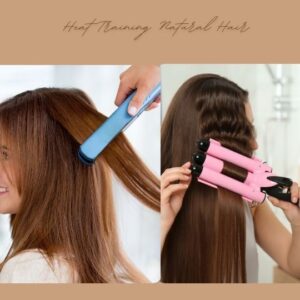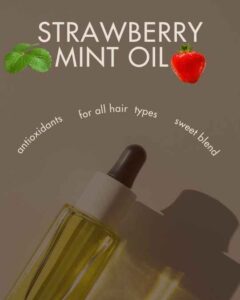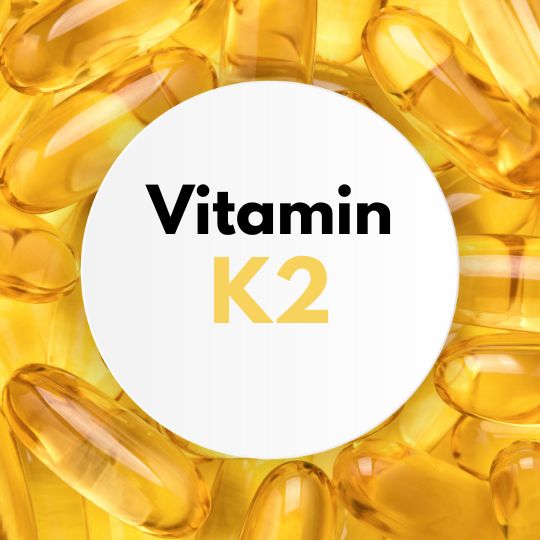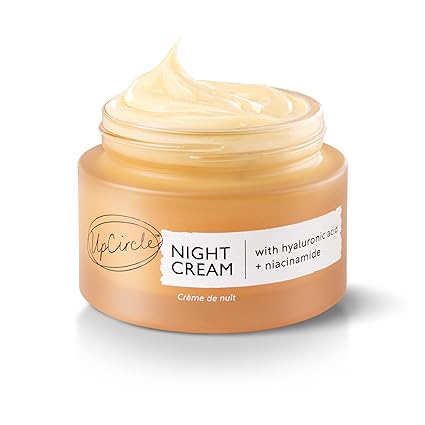It’s a superb method for balancing your skincare routine. Whether you’re just in it for healthier, better-conditioned skin, dealing with inflammation, dry skin, and wanting hydration, or maintaining a healthy microbiome, it does it all!
Please find it in serums, essences, moisturizers, and even cleansers to load skin with all of the probiotic benefits. Being a native ferment, this ingredient is so highly used and fascinating in skin care because it reinforces the human skin’s natural barrier by boosting hydration levels and helping to balance the local microbiome.
But it also makes you wonder… what is Lactobacillus Ferment and how does it benefit the skin?
What is Lactobacillus Ferment?
It is a byproduct that results from the fermentation of Lactobacillus bacteria, a lactic acid bacteria commonly found in fermented foods like yogurt, sauerkraut, and kefir. In skincare products, Lactobacillus is used after it has been fermented to create skin-beneficial compounds that help support the skin’s overall health and break down ingredients into smaller components for easier absorption.
What you get is an ingredient that can do wonders for soothing, hydrating, and protecting your skin.
The result? A potent ingredient that can soothe, hydrate, and protect your skin.
How Does Lactobacillus Ferment Help Your Skin?
Lactobacillus Ferment has numerous benefits for the skin. Here’s a closer look at how it works:
Strengthens the Skin Barrier
One of the most significant benefits of Lactobacillus Ferment is its ability to strengthen the skin barrier. Your skin barrier is essential for keeping moisture in and harmful irritants out. By maintaining a strong skin barrier, Lactobacillus Ferment helps reduce redness, sensitivity, and inflammation.
Balances the Skin’s Microbiome
Your skin hosts a community of microorganisms known as the microbiome. A balanced microbiome is crucial for healthy skin, as an imbalance can lead to issues like acne, dryness, or sensitivity. Lactobacillus Ferment helps maintain this balance by promoting the growth of beneficial bacteria and keeping harmful bacteria in check.
Boosts Hydration
It has the ability to increase the skin’s hydration levels. It helps improve moisture retention, leaving your skin feeling plump and nourished. This makes it particularly beneficial for those with dry or sensitive skin types.
Soothes Inflammation
Inflammation can cause various skin problems, from acne to rosacea. Lactobacillus Ferment has soothing properties that help calm irritated skin and reduce the appearance of redness, making it an excellent ingredient for sensitive skin.
Promotes Anti-Aging
With its ability to boost hydration and balance the microbiome, it helps improve the overall appearance of your skin, making it look healthier and more youthful. Keeping the skin barrier strong can also reduce the appearance of fine lines and wrinkles.
Properties and Active Ingredients of Lactobacillus Ferment
Lactobacillus Ferment is a byproduct of the fermentation process involving the Lactobacillus bacteria. This probiotic ingredient is packed with bioactive compounds that contribute to its effectiveness in skincare. Here’s a breakdown of its key properties and active ingredients:
Lactic Acid
One of the active ingredients produced by Lactobacillus during fermentation is lactic acid, a natural exfoliant that helps slough off dead skin cells, revealing smoother, brighter skin underneath. It also helps maintain the skin’s pH balance, which is crucial for overall skin health.
Peptides
Lactobacillus Ferment is rich in peptides, which are short chains of amino acids that play an essential role in the skin’s healing and regeneration process. Peptides help to repair the skin barrier, promote collagen production, and enhance elasticity, making the skin more resilient.
Antimicrobial Peptides (AMPs)
These are special peptides that help defend the skin against harmful pathogens by neutralizing bad bacteria and maintaining a healthy balance of the skin’s microbiome. This makes Lactobacillus Ferment beneficial for acne-prone and inflamed skin.
Probiotic Enzymes
These enzymes help break down large molecules in skincare products into smaller ones that are easier for the skin to absorb. Probiotic enzymes from Lactobacillus Ferment can aid in maintaining the skin’s moisture levels, soothing irritated skin, and improving its texture.
Exopolysaccharides
Lactobacillus Ferment can produce exopolysaccharides, which are sugar-based compounds that help retain water in the skin, keeping it hydrated and reducing dryness. They also form a protective layer on the skin, shielding it from environmental aggressors like pollution.
What Skin Types Benefit from Lactobacillus Ferment?
Lactobacillus Ferment is versatile and beneficial for a variety of skin types. Here’s how it can help different skin concerns:
Sensitive Skin
Lactobacillus Ferment is known for its soothing and anti-inflammatory properties. It helps reduce redness, irritation, and sensitivity by strengthening the skin’s natural defense mechanisms. This makes it a great ingredient for individuals with sensitive or reactive skin.
Dry and Dehydrated Skin
The hydrating properties of Lactobacillus Ferment make it ideal for dry skin types. It helps boost moisture retention by strengthening the skin barrier and attracting water to the skin. The presence of exopolysaccharides further enhances hydration, leaving the skin plump and nourished.
Acne-Prone Skin
Since Lactobacillus Ferment helps balance the skin’s microbiome, it makes for an especially great ingredient for acne-prone skin. By stimulating the proliferation of beneficial bacteria while inhibiting some harmful types, it acts as an antagonist against acne. It also produces antimicrobial peptides that help to fight inflammation and soothe irritated and inflamed skin.
Aging Skin
Lactic acid and peptides in Lactobacillus Ferment stimulate collagen production, while also helping to make skin firmer, reducing fine lines and wrinkles, and increasing the resilience of the skin.
Combination and Oily Skin
Lactobacillus Ferment can help regulate oil production, balance the skin’s pH levels, and prevent clogged pores, which are essential for those with combination or oily skin. It helps maintain a balanced microbiome without stripping the skin of its natural oils, making it ideal for those with oily or combination skin types.
Disadvantages of Lactobacillus Ferment
While Lactobacillus Ferment is a powerful ingredient with many benefits, it does have some potential drawbacks, depending on individual skin types or specific formulations. Here are a few disadvantages to consider:
Potential for Irritation
Though Lactobacillus Ferment is generally soothing, some individuals with extremely sensitive or reactive skin may experience irritation. This could be due to an allergic reaction or sensitivity to certain byproducts of fermentation, such as lactic acid.
Breakouts for Acne-Prone Skin
In rare cases, Lactobacillus Ferment-containing products may not be ideal for those with acne-prone skin if the formula also contains other comedogenic (pore-clogging) ingredients, and sometimes the fermentation can increase product activity, leading to breakouts or worsening of acne for some.
Effectiveness Depends on Formulation
The benefits of Lactobacillus Ferment can vary depending on how it is formulated in the product. If the concentration is too low, you won’t see much from this ingredient. And, if it’s combined with other ingredients that don’t support probiotics, it’ll be useless. You need a well-formulated product with a higher concentration to get anything.
Shorter Shelf Life
Products with live probiotics such as Lactobacillus Ferment may be more perishable than other skin care products given that fermentation-based ingredients may be sensitive to heat, light, and air exposure which may impact the potency of such ingredients over time. Store appropriately and check expiry dates to ensure efficacy.
Cost
Products containing Lactobacillus Ferment can sometimes be more expensive than traditional skincare options due to the specialized fermentation process and the use of live probiotics. If budget is a concern, you may need to weigh the benefits of using probiotic skincare against more affordable alternatives.
Incompatibility with Certain Active Ingredients
Lactobacillus Ferment may not play well with certain harsh active ingredients, like strong acids or retinoids. They can be too strong for the live probiotics, and thus both the Lactobacillus Ferment and the active ingredient may not be as effective. You’ll need to either refer to product usage instructions or space out these products in your skincare routine.
Lactobacillus Ferment for Various Age Groups
Teenagers and Young Adults (Ages 13-25)
For younger individuals, particularly those in their teenage years or early twenties, Lactobacillus Ferment can help manage acne-prone skin and oily skin. It promotes a balanced skin microbiome, which is essential for reducing breakouts, inflammation, and skin irritation.
Adults (Ages 25-45)
For adults, particularly those in their late twenties to mid-forties, Lactobacillus Ferment can help address skin hydration, maintain a healthy skin barrier, and promote skin healing. As the skin begins to experience early signs of aging the probiotic properties of Lactobacillus Ferment can help improve moisture retention and skin texture.
Mature Skin (Ages 45+)
For older individuals, Lactobacillus Ferment can provide anti-aging benefits by stimulating collagen production, improving skin elasticity, and enhancing the skin’s natural defense system. Mature skin tends to lose its ability to retain moisture and repair damage effectively.
Lactobacillus Ferment in Skincare Products
Due to its many benefits, Lactobacillus Ferment is now featured in a variety of skincare products. Here are a few products that harness the power of this probiotic ingredient:
- Dr. Jart+ Vital Hydra Solution Biome Essence
- Biossance Squalane + Probiotic Gel Moisturizer
- Aurelia Probiotic Skincare Miracle Cleanser
- Glow Recipe Avocado Ceramide Recovery Serum
It’s also used in various personal care products like deodorants, where it helps neutralize odors naturally by maintaining a healthy balance of bacteria on the skin. For example, Lactobacillus acidophilus in deodorant is known for its ability to reduce odor without the need for harsh chemicals.
Is Aloe Vera Good for Your Face? How to Use Aloe Vera On Your Face
Detox Scrub with Peppermint, Aloe Vera, and Walnut Shell Powder, Underarm Scrub-review
Conclusion
Lactobacillus Ferment is a powerhouse ingredient that delivers soothing, hydrating, and protective benefits to the skin. By supporting the skin’s microbiome and barrier function, it helps keep your complexion balanced, calm, and healthy. As skincare continues to evolve, Lactobacillus Ferment is becoming an essential component in many formulations aimed at improving skin health naturally.












